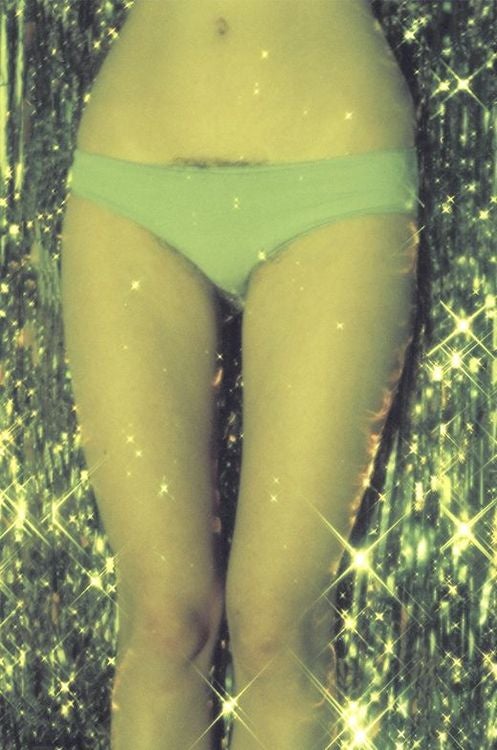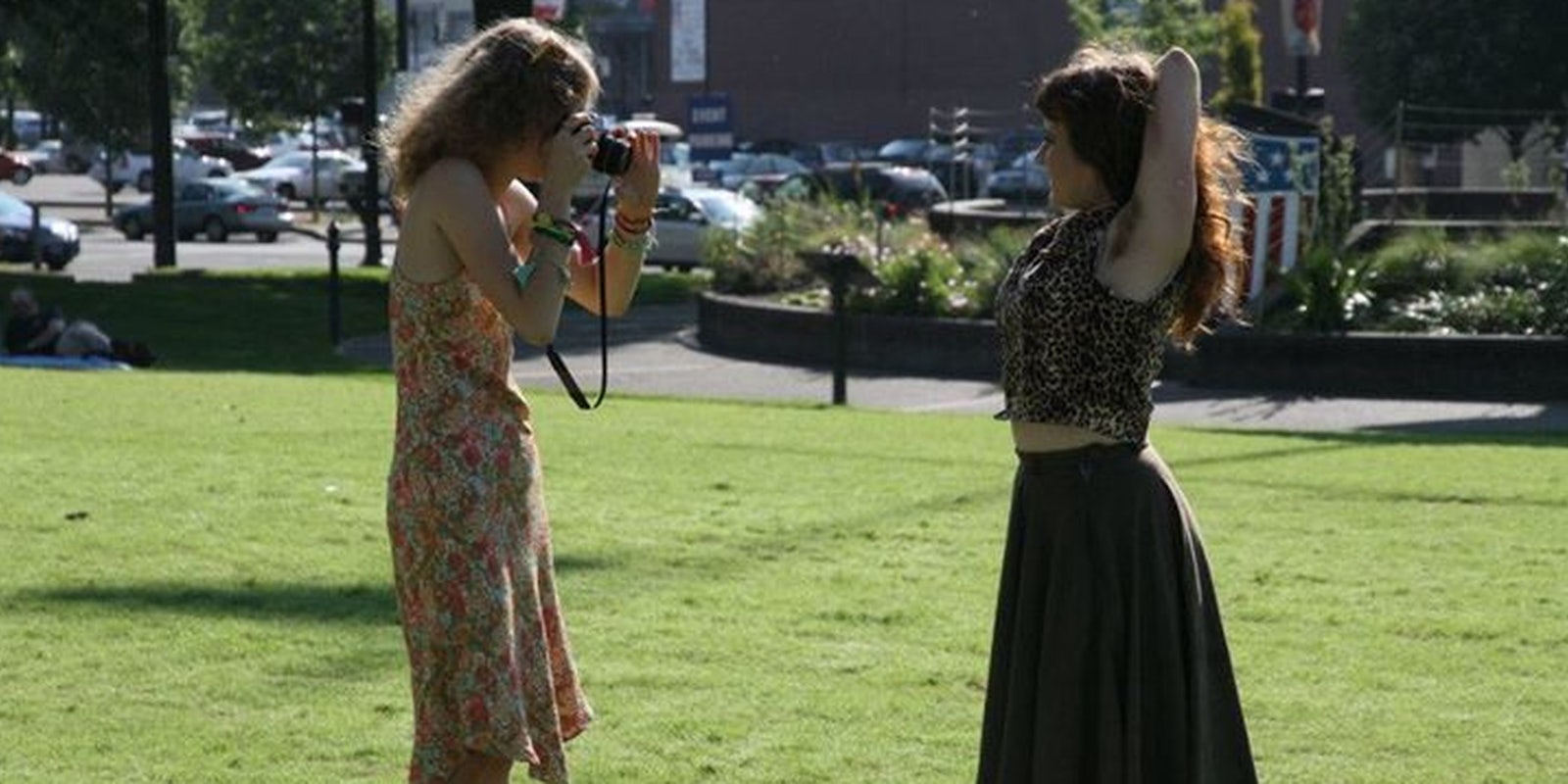Petra Collins is a 20-year-old Canadian artist and fashion photographer who’s shot for Rookie and Vice. Like many photographers, she has her own Instagram account. Recently, it was deleted—due to one image of her bikini line.
Collins took to her Tumblr to discuss the deletion, which was not her choice, and the photo that caused it: A shot of her in underwear, with a bit of pubic hair showing. Collins was also behind a recent American Apparel shirt that featured a drawing of a menstruating vagina, which caused much hand-wringing on the Internet. She starts her essay there:
“I wasn’t shocked at the reaction I received from my t-shirt. I’m used to being told by society that I must regulate my body to fit the norm. I’m used to the fact that images of unaltered women are seen as unacceptable. I’ve taught myself to ignore it (as much as I can) and through the Internet (via sites like ROOKIE Mag) and social media platforms (like Instagram and Facebook) I’ve been able to freely share images and start discussions about these issues. Recently I had my Instagram account deleted. I did nothing that violated the terms of use. No nudity, violence, pornography, unlawful, hateful, or infringing imagery. What I did have was an image of MY body that didn’t meet society’s standard of “femininity.” The image I posted was from the waist down wearing a bathing suit bottom in front of a sparkly backdrop. Unlike the 5,883,628 (this is how many images are tagged #bikini) bathing suit images on Instagram (see here and here) mine depicted my own unaltered state – an unshaven bikini line.”

Collins then goes on to critique the media culture that measures women by their appearance and lists off all the things she and other women are “used to,” whether we like it or not. But the bigger issue here is the censorship of images, and what constitutes an offensive image.
Instagram’s terms of use state users can’t post “pornographic or sexually suggestive photos,” but who actually gets to decide that? You can indeed find more sexually suggestive photos on the site than Collins’, where women show the side of “femininity” the world is “used to” seeing and accepting. Here’s what one Twitter user found when she hit “explore” on Instagram:
Also, this is the first lot of photos to come up when I hit explore. @instagram @petracollins pic.twitter.com/YWEcRyFBxK
— Kat Georgé (@kat_george) October 17, 2013
Collins found the deletion of her art to be indicative of a bigger issue:
“The deletion of my account felt like a physical act, like the public coming at me with a razor, sticking their finger down my throat, forcing me to cover up, forcing me to succumb to societies image of beauty. That these very real pressures we face everyday can turn into literal censorship. If the Internet mimics real life then there is no doubt that real life can mimic it. That if we allow ourselves to be silenced or censored it can happen in real life too. That if an online society of people can censor your body what stops them from doing so in real life. This is already happening, you experience this everyday. When someone catcalls at you, yells “SLUT,” comments on all your Facebook photos calling you “disgusting,” tries to physically violate you, spreads private nude images of you to a mass amount of people via text, calls you ugly, tells you to change your body, tells you are not perfect, this cannot continue to be our reality.”
That an image of a woman’s pubic hair, unaltered, was deemed deletable on Instagram is problematic, but it also highlights a bigger problem with women’s images, with women’s “natural state,” and the shaming that surrounds it.
Photo via Petra Collins/Facebook


